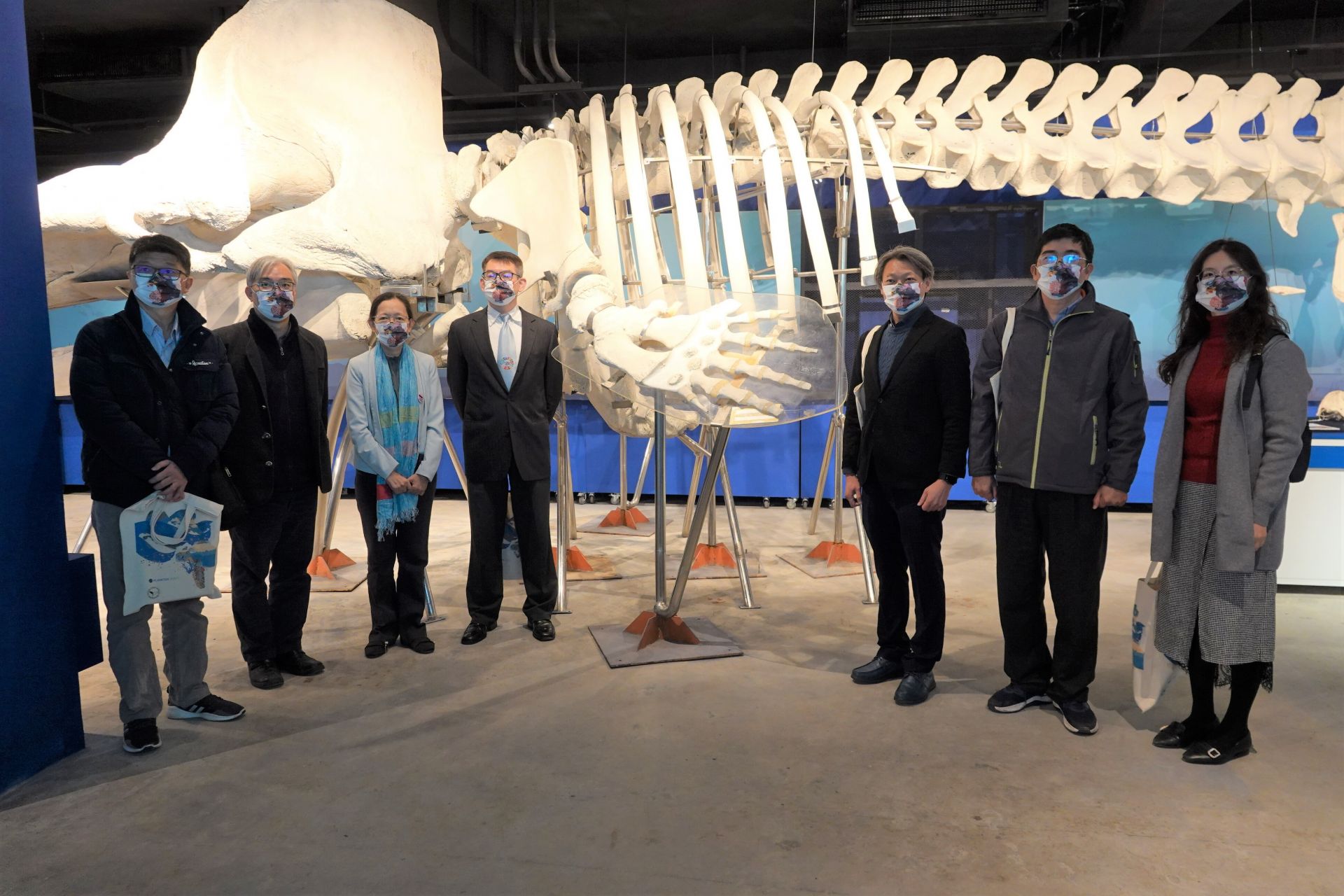SDG14
NCKU Marine Biology and Cetacean Research Center Hopes for More Volunteers to Join in Protecting Marine Ecology
Since its establishment in 2009, the National Cheng Kung University (NCKU) Marine Biology and Cetacean Research Center has been dedicated to the rescue, post-rescue care, and related analysis of stranded cetaceans. Over the past 14 years, they have dealt with hundreds of cetacean stranding incidents, sheltered and rehabilitated many cetaceans, successfully releasing 10 of them back into the ocean. These achievements are largely attributed to the selfless dedication of all the volunteer friends involved in cetacean conservation work. Professor Wang Haowen, director of the Cetacean Research Center, has a wish to cultivate more volunteers for the center and raise awareness of cetacean conservation in society, thereby protecting marine ecology together.
Cetacean rescue involves not only the rescue itself but also a series of follow-up work. While the short-term rescue operation may conclude in 3 to 5 days, if the rescued cetaceans require medical care and rehabilitation, the time needed may extend to 1 to 3 months. Due to limited manpower at the cetacean center, support from volunteer partners is often necessary. Professor Wang Haowen mentioned that stranded cetaceans rescued are often in poor physical and health conditions, requiring 24-hour care. He recalled a time when there was a severe shortage of manpower for care during a night shift because it coincided with midterm exams at the university. Upon hearing this, several volunteer students who had exams the next day generously said, "Teacher, hand them over to us before 8 a.m." Reflecting on this, he still feels deeply grateful and moved.
The dedication of volunteers doesn't stop there. Professor Wang Haowen also remembered a time when a typhoon struck, causing the roof of the rescue pool at the cetacean center to be blown off, leaving only the framework. Volunteers immediately put on raincoats and entered the pool to care for the cetaceans despite heavy rain. He will never forget that scene.
Recruiting volunteers for the cetacean center is not easy. In addition to posting recruitment notices on their personal Facebook pages, they also post on various online platforms. However, the demand for manpower is hard to meet, and they are currently seeking other channels for promotion and expansion to alleviate the problem of insufficient volunteers. Professor Wang Haowen speculated that the shortage of volunteers may be related to the declining birth rate and the population size of the region. When participating in rescues in northern Taiwan, the reduction in the number of volunteers seems less significant, as Tainan City has a population of less than 2 million, while New Taipei City has over 4 million and Taipei City has nearly 2.5 million.
While the public often only focuses on the rescue aspect of the cetacean center's work, as a research-oriented university, NCKU also conducts relevant research, such as pathology, histology, and even developmental biology, to identify factors that may cause cetacean deaths and understand the underlying causes of the entire event. This information can reflect what environmental changes have occurred. These accumulative efforts can inform the government of necessary policy improvements and the industry of rules to follow to protect the ocean, gradually forming a sense of social responsibility. Moreover, the Department of Life Sciences at NCKU has also offered courses related to cetaceans, planting the seeds of marine environmental protection through education.
To raise more awareness of marine and cetacean conservation, the cetacean center also organizes reservation-based visits and arranges activities such as simulating cetacean rescues to allow visitors to experience the mission of rescue and conservation. Additionally, they collaborate with the Tainan City Cultural Affairs Bureau and Education Bureau to organize promotional activities, hoping to achieve cumulative effects and inspire more people to be interested in, willing to participate in, and committed to marine conservation.
Cetacean rescue involves not only the rescue itself but also a series of follow-up work. While the short-term rescue operation may conclude in 3 to 5 days, if the rescued cetaceans require medical care and rehabilitation, the time needed may extend to 1 to 3 months. Due to limited manpower at the cetacean center, support from volunteer partners is often necessary. Professor Wang Haowen mentioned that stranded cetaceans rescued are often in poor physical and health conditions, requiring 24-hour care. He recalled a time when there was a severe shortage of manpower for care during a night shift because it coincided with midterm exams at the university. Upon hearing this, several volunteer students who had exams the next day generously said, "Teacher, hand them over to us before 8 a.m." Reflecting on this, he still feels deeply grateful and moved.
The dedication of volunteers doesn't stop there. Professor Wang Haowen also remembered a time when a typhoon struck, causing the roof of the rescue pool at the cetacean center to be blown off, leaving only the framework. Volunteers immediately put on raincoats and entered the pool to care for the cetaceans despite heavy rain. He will never forget that scene.
Recruiting volunteers for the cetacean center is not easy. In addition to posting recruitment notices on their personal Facebook pages, they also post on various online platforms. However, the demand for manpower is hard to meet, and they are currently seeking other channels for promotion and expansion to alleviate the problem of insufficient volunteers. Professor Wang Haowen speculated that the shortage of volunteers may be related to the declining birth rate and the population size of the region. When participating in rescues in northern Taiwan, the reduction in the number of volunteers seems less significant, as Tainan City has a population of less than 2 million, while New Taipei City has over 4 million and Taipei City has nearly 2.5 million.
While the public often only focuses on the rescue aspect of the cetacean center's work, as a research-oriented university, NCKU also conducts relevant research, such as pathology, histology, and even developmental biology, to identify factors that may cause cetacean deaths and understand the underlying causes of the entire event. This information can reflect what environmental changes have occurred. These accumulative efforts can inform the government of necessary policy improvements and the industry of rules to follow to protect the ocean, gradually forming a sense of social responsibility. Moreover, the Department of Life Sciences at NCKU has also offered courses related to cetaceans, planting the seeds of marine environmental protection through education.
To raise more awareness of marine and cetacean conservation, the cetacean center also organizes reservation-based visits and arranges activities such as simulating cetacean rescues to allow visitors to experience the mission of rescue and conservation. Additionally, they collaborate with the Tainan City Cultural Affairs Bureau and Education Bureau to organize promotional activities, hoping to achieve cumulative effects and inspire more people to be interested in, willing to participate in, and committed to marine conservation.
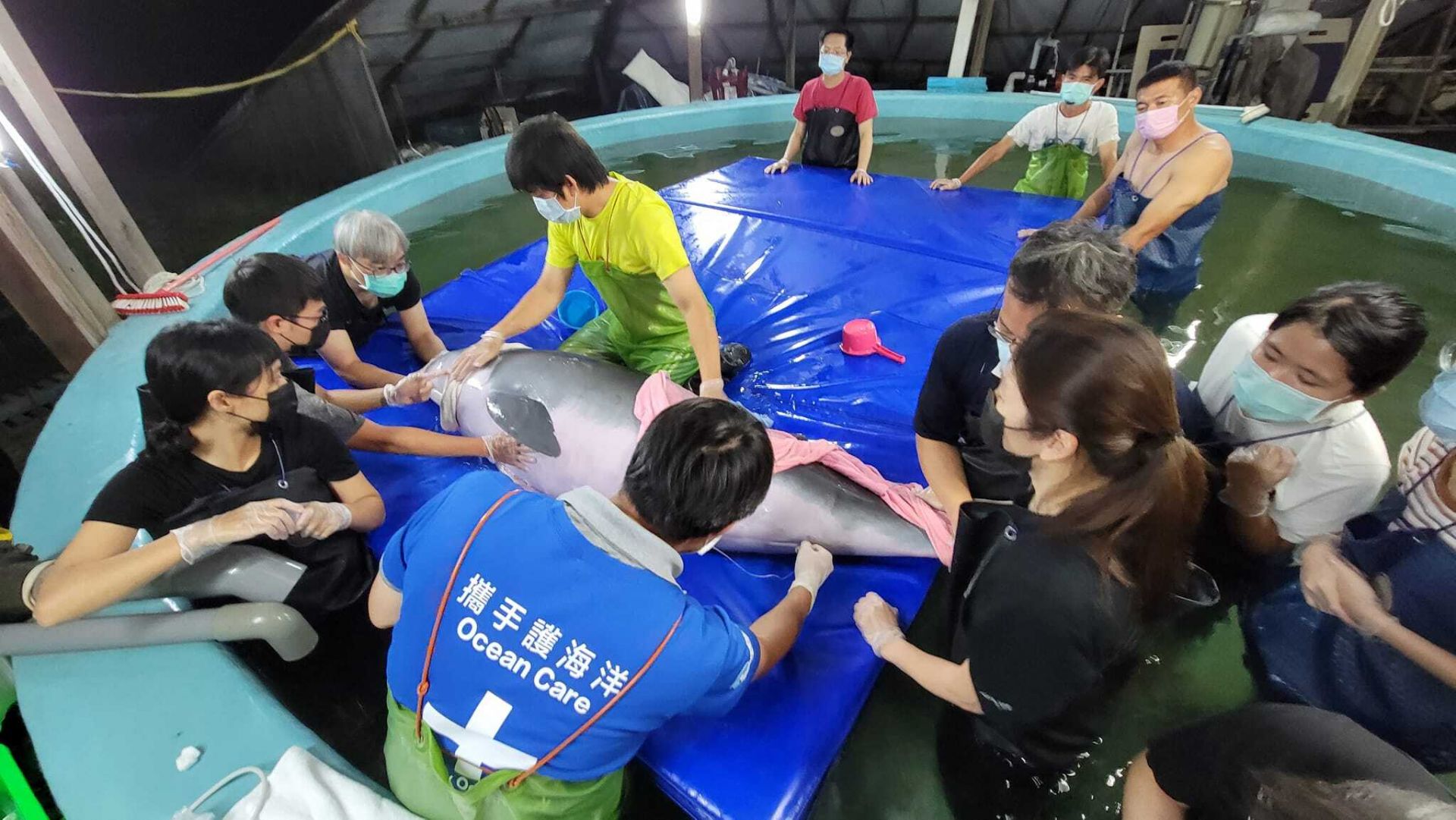
Over the past 14 years since its establishment, the Cetacean Rehabilitation Center at National Cheng Kung University has accommodated and rehabilitated numerous dolphins and whales.
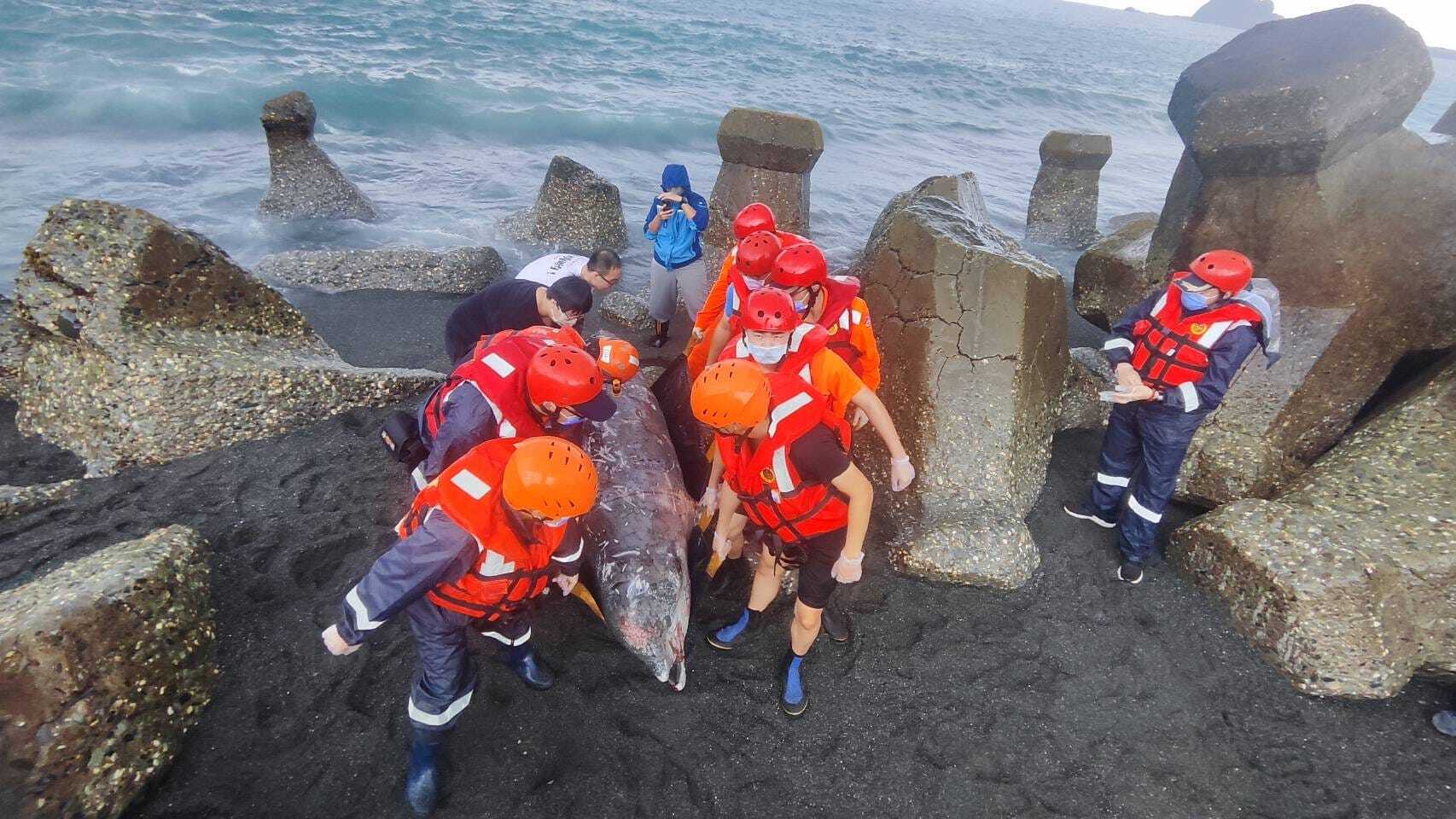
The rescue work for dolphins and whales requires the concerted efforts of many volunteer partners working together.
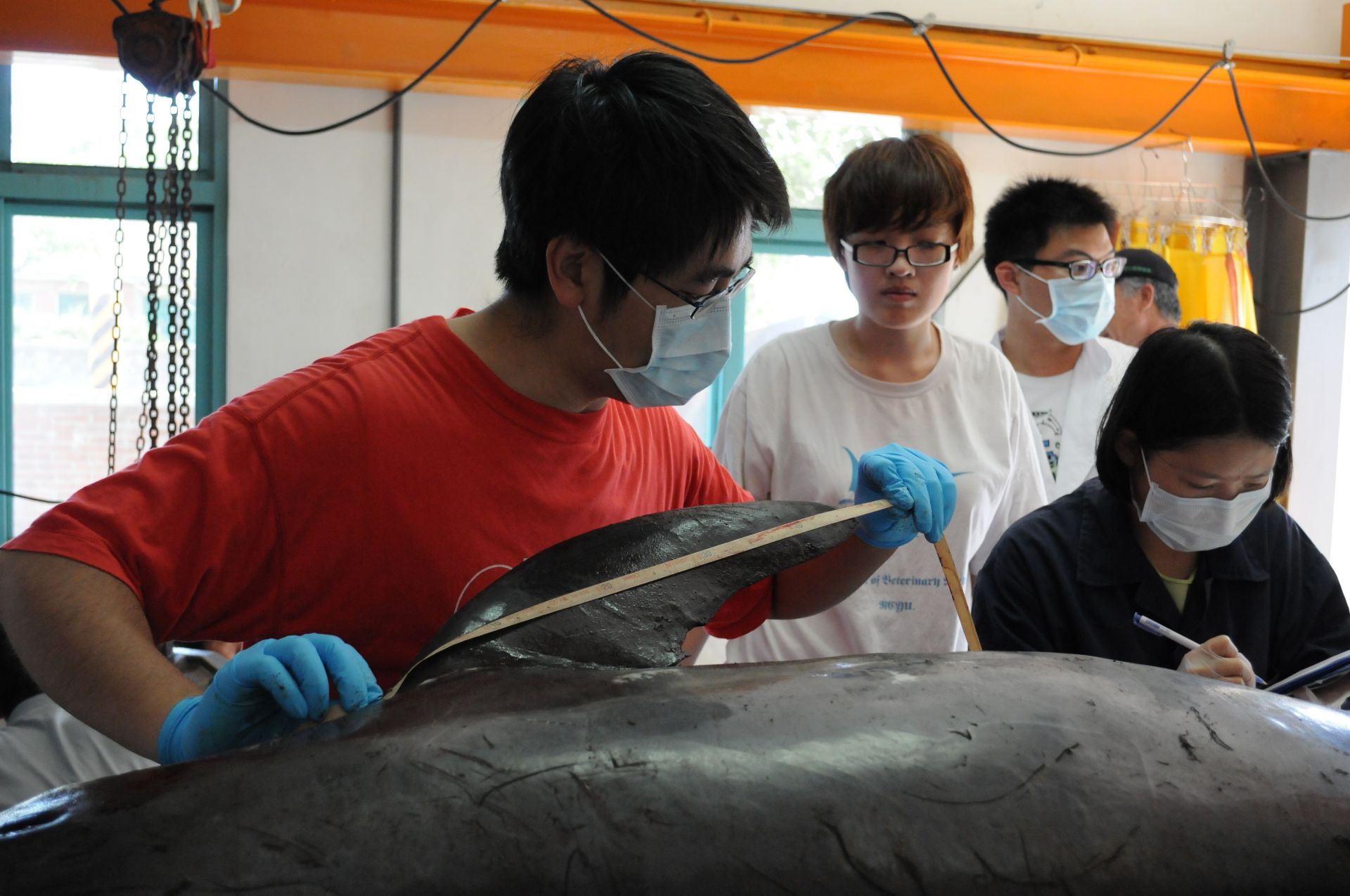
As a research university, National Cheng Kung University (NCKU) is also involved in research related to dolphins and whales.
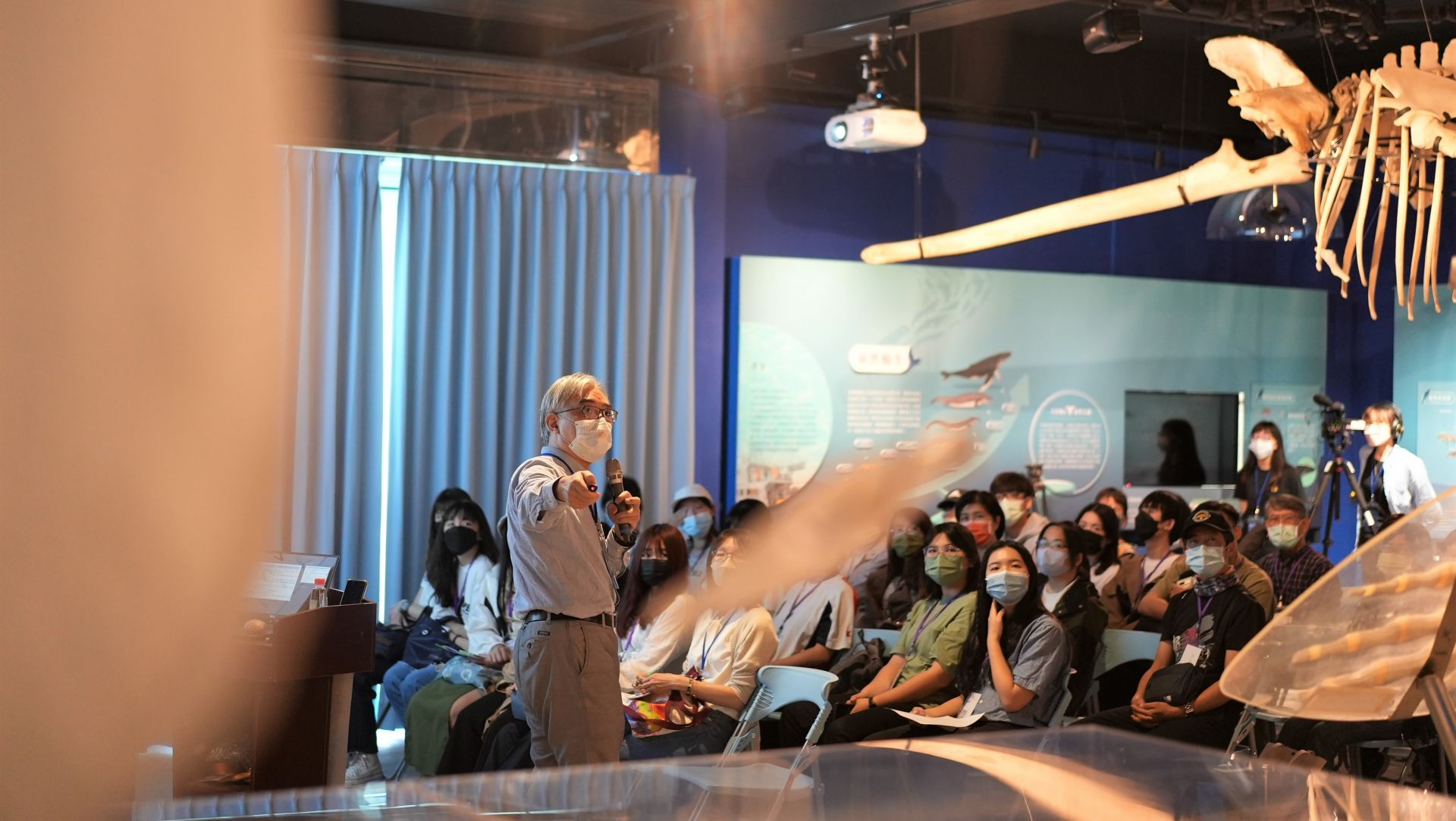
Professor Wang Haowen promotes the conservation of dolphins and whales.

SDG14NCKU, NPU, and Penghu County Government Sign MOU to Promote Tech, Cultural, and Marine Innovation for Sustainable Development
View more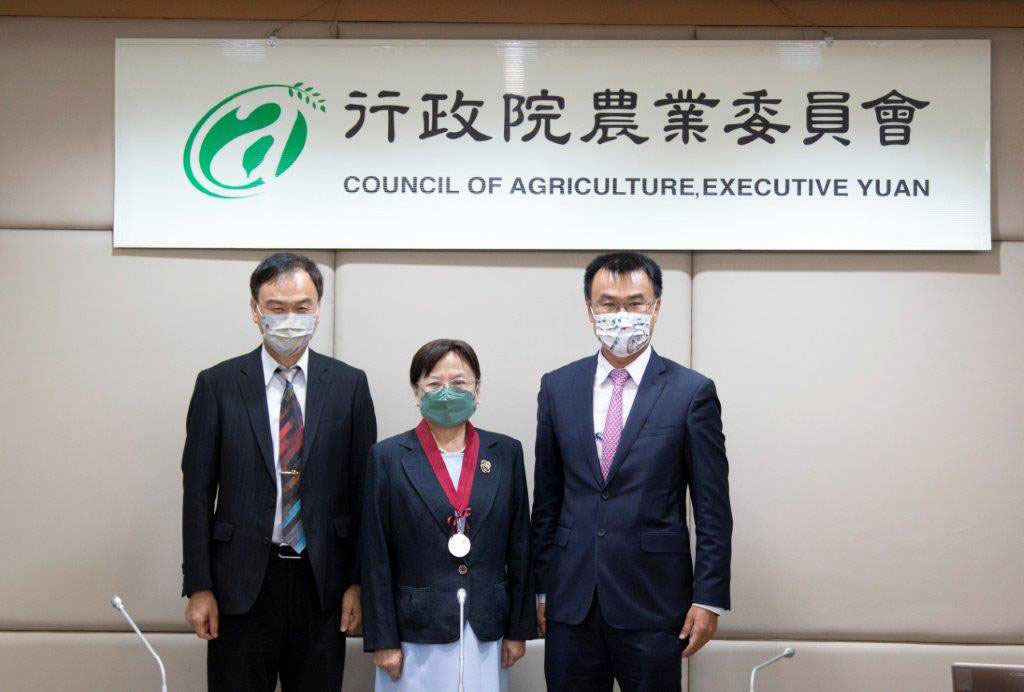
SDG14Research on Aquatic Animal Disease Recognized Internationally: Chai Prof. Chu-Fang Lo Won OIE Outstanding Contribution Award
View more